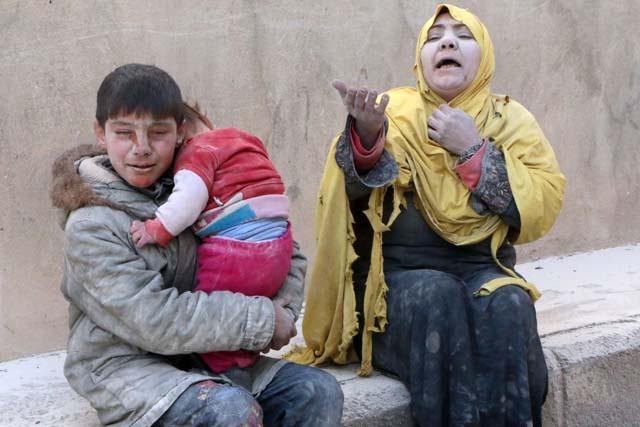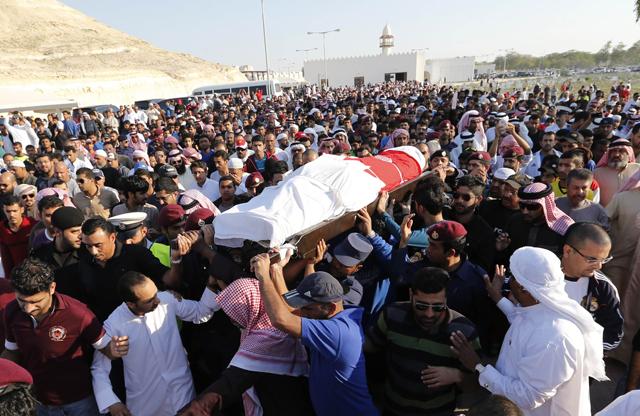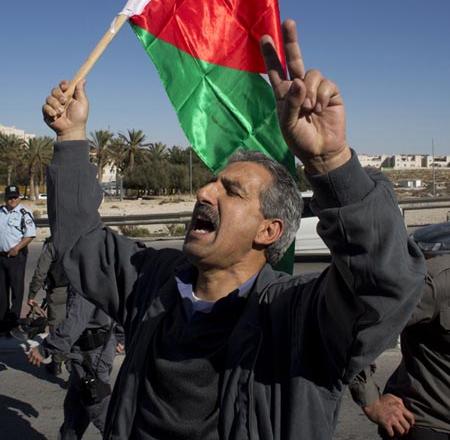GENEVA — International mediator Lakhdar Brahimi apologised to the Syrian people on Saturday for the lack of progress at peace talks in Geneva after their second round ended with little more than an agreement to meet again.
The Algerian-born diplomat said the agreement to evacuate people from the besieged city of Homs had raised hopes that had not been satisfied at the Geneva talks, involving opposition groups and representatives of President Bashar Assad.
The head of the International Committee of the Red Cross (ICRC) also stressed how meagre the results had been, saying an evacuation from Homs did not herald any wider improvement in humanitarian access to Syria’s civil war zones, where the United Nations says up to three million people in need are beyond its reach.
“I am very, very sorry and I apologise to the Syrian people that their hopes, which were very, very high here, that something will happen here,” Brahimi told journalists after the talks.
“I think that the little that has been achieved in Homs gave them even more hope that maybe this is the beginning of coming out of this horrible crisis they are in.”
Saturday’s last session of the second round of the talks was “as laborious as all the meetings we have had, but we agreed on an agenda for the next round when it does take place”, Brahimi added.
He said both sides would need to reflect on their responsibilities before round three, and that the government in particular had to accept that the main objective of talks was transition.
Fears of ground assault
The three-year-old Syrian conflict has killed more than 140,000 people — more than 7,000 of them children — according to the Syrian Observatory for Human Rights, and is destabilising the country’s neighbours.
The pro-opposition observatory, a British-based monitoring group, said around 6,000 Syrians have been killed since the latest talks started last month, the fastest death rate recorded since the country slid into conflict in 2011.
The rebels come mainly from Syria’s majority Sunni Muslims and have been joined by radical Sunni groups such as Al Qaeda and other foreign militants.
Shiite Muslim Iran and the powerful Lebanese Shiite movement Hizbollah have thrown their weight behind Assad, who is from Syria’s minority Alawite sect, an offshoot of Shiite Islam, and whose family has dominated Syria for 44 years.
Thousands of people fled a rebel-held western Syrian town, Yabrud, on Friday after it was bombed and shelled in an operation that has stirred fears of a major assault by ground troops, the United Nations said.
Al Manar television, run by Lebanon’s Hizbollah, said the Syrian army had advanced in the Yabrud area, seizing control of the town’s main road and a nearby border crossing that it said was used for smuggling
Brahimi said the points to be discussed at the next Geneva round included violence and terrorism, a transitional governing body, national institutions and national reconciliation.
However, he added, the Syrian government first wanted to deal with the issue of combating “terrorism” — the word it uses to describe armed opposition to Assad’s rule — and had refused to deal with any other points until that was resolved.
Obama sees no early solution
Brahimi said he hoped both sides would consider their responsibilities and “the government side in particular [will] reassure us that when they speak of implementing the Geneva Communique they do mean [that] a transitional governing body, exercising full executive power, will be the main objective”.
Opposition National Coalition spokesman Louay Safi said there was “nothing positive” to take from round two, which lasted a week. The final session lasted around half an hour.
Syrian government delegate Bashar Al Jaafari, said the opposition wanted the issue of “terrorism” to stay open-ended. “Whoever refuses to fight terrorism is part of terrorism,” he told reporters after the final session.
ICRC President Peter Maurer said in a statement that the Syrian government and opposition still did not honour basic tenets of international humanitarian law despite the evacuation of besieged Syrians from Homs.
There were many other besieged areas besides Homs, he said, with more than a million people living in very difficult conditions.
“Negotiations with the Syrian authorities and opposition groups have not resulted in meaningful access or a firm commitment to respect the basic principles of international humanitarian law,” he said. “This pattern has again played out in Homs over the last week.”


















